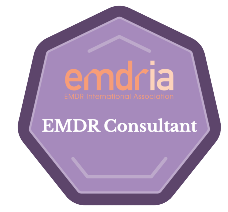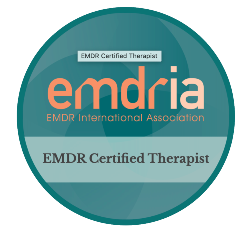What to Look For in an EMDR Therapist
EMDR therapy is fast becoming a common therapy in which many therapists are trained. That said, not all clinicians are correctly using EMDR therapy, which can be ineffective, upsetting, or destabilizing for clients. This is unfortunate because there is so much healing potential that can come from good EMDR therapy, but it can be hard to know how to find those good EMDR clinicians.
So, How Do You Find a Good EMDR Therapist?
Ask questions. Never hesitate to ask questions of potential therapists when you make your initial phone call. Below are a few questions you may find helpful when searching for the best fit:
What are the therapist’s credentials?
Check the therapist’s credentials. EMDR therapists should be licensed mental health clinicians, or working toward their licensure under the supervision of a licensed mental health clinician.
Where were they trained in EMDR therapy?
Find out where they were trained in EMDR therapy. Confirm that they were trained in EMDR therapy by an EMDRIA-approved training program. Unfortunately, not all EMDR training is the same. There are many wonderful trainings out there, but there are also EMDR therapy trainings that claim to be teaching EMDR to clinicians but are not EMDRIA approved. These trainings don’t teach some of the important components of EMDR therapy, including teaching clinicians how to adequately prepare their clients for the EMDR.
Is the EMDR therapist certified or working toward certification?
EMDR therapy-trained clinicians are initially considered “EMDR Therapy Trained” upon completion of their training. To become an EMDR Certified Therapist, it involves ongoing EMDR Consultation with an EMDRIA Approved Consultant* or Consultant-in-training until the clinician meets certain requirements for certification. This process can take anywhere from approximately one year to several years beyond the completion of the training. It is not required but is very important. Serious EMDR clinicians are either EMDR Certified or working toward their EMDR certification.
*An EMDRIA Approved Consultant is an EMDR Certified Clinician that has continued beyond certification to meet requirements set by EMDR International Association to provide consultation to EMDR-trained therapists seeking Certification or Approved Consultant status.
When you meet with your EMDR therapist, are they able to effectively explain EMDR to you?
A good EMDR therapist understands how EMDR works and will know how to explain it to clients so that they understand the process.
Does the EMDR therapist rush into the EMDR, or do they start by spending time teaching you coping strategies and making certain you can manage the process of doing the EMDR?
The first step in any good trauma therapy is stabilization. This applies to EMDR therapy work as well. Before being able to work through traumatic or disturbing experiences, clients should know how to access their coping skills. EMDR therapists are taught to begin therapy by teaching these skills to their clients and making sure the clients are ready before they begin to reprocess the trauma. One of the myths about EMDR therapy is that it is always brief. That is not always the case, as it depends greatly on a number of things including the history of the client and the coping skills that they use to manage stress.
Does the therapist work to develop a safe environment and to build trust in the therapeutic relationship?
Trust is a key component in any good therapy and EMDR therapy is no different. Trauma work such as EMDR can bring up feelings of vulnerability, and as a result, having a safe, trusting therapeutic relationship is key in setting the stage for effective EMDR therapy.
Does the therapist stay involved in ongoing advanced training in EMDR therapy and/or are they involved in ongoing consultation?
Find a good EMDR therapist who stays abreast of current research and training topics by attending EMDRIA-approved EMDR advanced training and participating in EMDR consultation. The field of EMDR is always changing and evolving as new research in the field of neuropsychology impacts what we understand about the human brain and its capacity for healing. Serious EMDR therapists are aware of the need for ongoing training and consultation and stay active in the field.
There is much to be gained from good EMDR therapy. It can bring healing that is unlike any other therapy, and it is worth the time taken to research and find a qualified EMDR therapist with whom to work. For more information on EMDR therapy:





